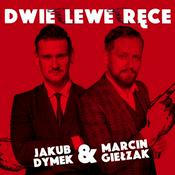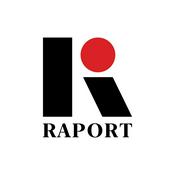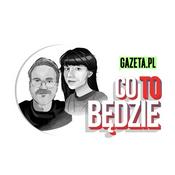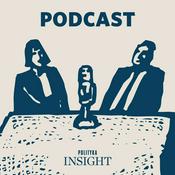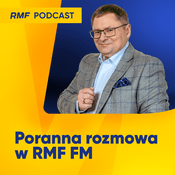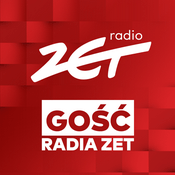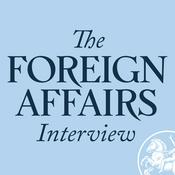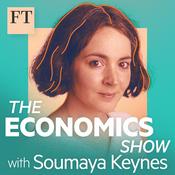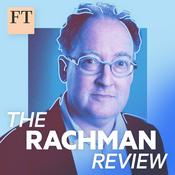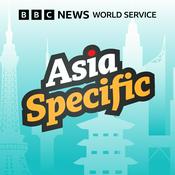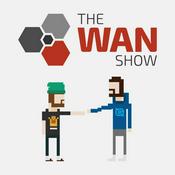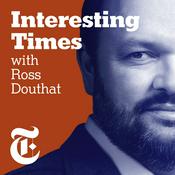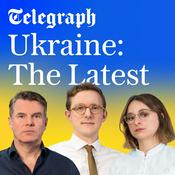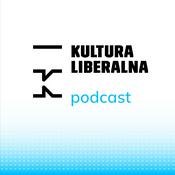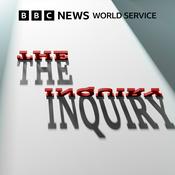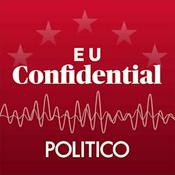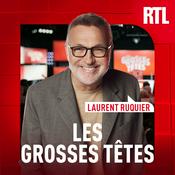408 odcinków
- During this record-breaking cold winter, millions of Ukrainians are regularly left without electricity, water, or heat as temperatures plummet to -20°C and below. Does Russia intend to make life in Ukraine unlivable? Can the country’s civilian infrastructure continue to withstand such a massive, relentless assault? And what are the alternatives for the future?
***
Explaining Ukraine is a podcast by UkraineWorld, an English-language media outlet covering Ukraine.
Host: Volodymyr Yermolenko—Ukrainian philosopher, editor-in-chief of UkraineWorld, and president of PEN Ukraine.
Guest: Oksana Ishchuk, an analyst specializing in international and energy relations at the Centre for Global Studies "Strategy XXI," a prominent Ukrainian think tank.
***
Listen on various platforms: https://li.sten.to/explaining-ukraine
UkraineWorld: https://ukraineworld.org/en
***
SUPPORT:
You can support our work on https://www.patreon.com/c/ukraineworld
Your help is crucial, as we rely heavily on crowdfunding.
You can also contribute to our volunteer missions to frontline areas in Ukraine, where we deliver aid to both soldiers and civilians.
Donations are welcome via PayPal at: [email protected].
***
CONTENTS:
02:05 — The real goal behind Russian energy strikes on Ukraine
05:10 — Is a "total blackout" in Ukraine possible?
09:00 — A Soviet-built system: pros and cons
12:20 — Why Ukrainian cities go dark all at once
14:40 — Why every citizen must prepare for the next winter now
16:40 — The reason Russia succeeded only this winter
18:30 — Fragmenting the grid: Russia’s new energy tactics
19:55 — Why can’t Ukraine defend every power plant?
22:30 — The terrifying reality of Russia’s "indirect" nuclear terrorism
27:40 — Rebuilding the grid for a long war
32:10 — Why sanctions policy should be improved
34:30 — How Russia bypasses sanctions via the Baltic Sea
36:40 — The kind of Ukraine’s resilience Europe tries to understand - What are the prospects for peace talks — and why are many Ukrainians skeptical about them? Does Ukraine have technological parity with Russia on the battlefield? And how has Ukrainian civil society become one of the country’s greatest assets during the war?
***
Host: Volodymyr Yermolenko, a Ukrainian philosopher, editor-in-chief of UkraineWorld, and president of PEN Ukraine.
Guest: Volodymyr Havrylov, retired major general of Ukraine’s Armed Forces, former deputy defense minister, and former Ukrainian defense attaché to the United States.
***
Explaining Ukraine is produced by UkraineWorld and brought to you by Internews Ukraine. This episode is created with support from Politeia, a Ukrainian NGO.
Listen on various platforms: https://li.sten.to/explaining-ukraine
UkraineWorld: https://ukraineworld.org/en
***
SUPPORT:
You can support our work on https://www.patreon.com/c/ukraineworld
Your help is crucial, as we rely heavily on crowdfunding.
You can also contribute to our volunteer missions to frontline areas in Ukraine, where we deliver aid to both soldiers and civilians.
Donations are welcome via PayPal at: [email protected].
***
CONTENTS:
00:00 - Intro.
01:26 - On peace negotiations.
08:31 - Who is winning the technological war?
15:30 - Key challenges of Ukrainian military technological progress
18:59 - Why we need integration of European and Ukrainian military production
24:19 - What’s next in war tech?
30:05 - Is Ukraine digitizing its defense?
33:38 - Can reliance on Chinese components become a risk?
38:44 - What to expect from Russia in the coming years?
47:53 - Where should we look for hope?
51:00 - Outro.
51:35 - Support us: patreon.com/ukraineworld Cities without kings: humanity's prehistory on Ukrainian soil — with David Wengrow
28.01.2026 | 52 min.What can the deep past of Ukrainian lands reveal about the global story of humanity? Six thousand years ago, "mega-sites" flourished in what is now central Ukraine—but can these be considered the world’s first cities? How were they organized without central authorities, and how do they challenge everything we thought we knew about early social life?
***
This is Thinking in Dark Times, a podcast by UkraineWorld, an English-language multimedia project about Ukraine.
Host: Volodymyr Yermolenko, a Ukrainian philosopher, editor-in-chief of UkraineWorld, and president of PEN Ukraine.
Guest: David Wengrow, a renowned British archaeologist and Professor of Comparative Archaeology at University College London. He is the co-author, alongside David Graeber, of the international bestseller "The Dawn of Everything: A New History of Humanity".
***
Thinking in Dark Times is produced by UkraineWorld and brought to you by Internews Ukraine. It is supported by the International Renaissance Foundation and Politeia, a Ukrainian NGO.
***
SUPPORT:
You can support our work on https://www.patreon.com/c/ukraineworld
Your help is crucial, as we rely heavily on crowdfunding.
You can also contribute to our volunteer missions to frontline areas in Ukraine, where we deliver aid to both soldiers and civilians.
Donations are welcome via PayPal at: [email protected].
***
CONTENTS:
00:00 - Intro. What can the deep past of Ukraine reveal about the global story of humanity?
00:14 - Were the world’s first cities actually built in what is now Ukraine?
02:51 - Why does the Ukrainian soil play a key role in rethinking the origins of cities and states?
03:55 - Why are standard narratives of human history fundamentally wrong?
09:15 - What were the Cucuteni-Trypillia megasites?
17:23 - Why does the existence of egalitarian cities overturn political history itself?
20:35 - What does a circular city say about how people imagined the world?
21:27 - How did thousands of people govern themselves without rulers?
26:36 - Did democracy exist thousands of years before ancient Greece?
28:29 - Were Hobbes and Rousseau both wrong about human nature?
42:29 - Is Ukrainian history shaped by a tension between freedom and vulnerability?
47:22 - What do burning rituals reveal about cyclical views of life and nature?
50:51 - Why does Ukraine’s past matter for the future of humanity?- In 2025, Ukraine is facing unprecedented pressure from one of its key partners, the United States. The Trump administration has chosen not to act as Ukraine’s ally, but rather as a mediator between Ukraine and Europe on the one hand, and Russia on the other.
This shift has fundamentally changed the geopolitical framework of Russia’s war against Ukraine. Around the world, the language of victory has largely been replaced by the language of peace. Yet under current conditions, “peace” often implies that Ukraine will not regain its occupied territories—and such a peace may, in fact, amount to Ukraine’s defeat.
In this episode, we explain why this is a dangerous path. We also look back at 2025 and summarize its key developments
***
Host: Volodymyr Yermolenko, a Ukrainian philosopher, editor-in-chief of UkraineWorld, and president of PEN Ukraine.
Guest: Tetyana Ogarkova, a Ukrainian journalist and public intellectual, the head of the international department at the Ukraine Crisis Media Centre, and author of the podcast “L’Ukraine face a la guerre”, “Ukraine facing the war”, in French.
***
Explaining Ukraine is a podcast by UkraineWorld, an English-language media platform about Ukraine, run by Internews Ukraine.
Listen on various platforms: https://li.sten.to/explaining-ukraine
UkraineWorld: https://ukraineworld.org/en
***
SUPPORT:
You can support our work on https://www.patreon.com/c/ukraineworld
Your help is crucial, as we rely heavily on crowdfunding.
You can also contribute to our volunteer missions to frontline areas in Ukraine, where we deliver aid to both soldiers and civilians.
Donations are welcome via PayPal at: [email protected].
***
CONTENTS:
00:00 - Introduction
01:46 - US's shift from ally to mediator in Russia-Ukraine war. The impact of the Trump administration's approach to military aid.
06:13 - Trump and Putin's similar world vision regarding spheres of influence.
07:03 - Key elements of proposed peace plans: territorial concessions, security guarantees, and military withdrawal.
08:38 - Ukraine's public opinion against territorial concessions.
13:55 - The "fog" of peace negotiations occurring amidst ongoing total war and Russia's strategy of buying time.
17:33 - Legal and moral challenges of territorial concessions and skepticism about the legitimacy of peace plan negotiators.
20:48 - The escalation of the war, increased civilian suffering due to infrastructure bombardments, and Ukraine's strategy to target the Russian economy.
25:01 - Ukraine's dilemma in peace talks and Russia's strategy of worsening conditions over time.
29:04 - Donald Trump's political weaknesses and Zelenskyy's strategy
30:57 - The security situation on the front line: the rise of drone warfare, its increasing danger to civilians, and the expanding "kill zone."
39:07 - Ukrainian internal politics: the war against corruption, the role of civil society, and Zelenskyy's responsiveness to public opinion.
46:45 - Concluding remarks and a call for support for UkraineWorld. - Imagine an NGO that has raised over one billion dollars to support the Ukrainian army. Imagine a civil society initiative that purchases armaments and military equipment. Imagine a transparent organisation with an independent board and detailed reporting. This NGO exists — it is called “Povernys Zhyvym”, or “Come Back Alive”. It is one of the largest Ukrainian civil society foundations supporting Ukraine’s defense.
In this episode, we will speak about its work — and about the ways you can help Ukraine.
***
Explaining Ukraine is a podcast by UkraineWorld, an English-language media platform about Ukraine, run by Internews Ukraine.
Listen on various platforms: https://li.sten.to/explaining-ukraine
UkraineWorld: https://ukraineworld.org/en
***
Host: Volodymyr Yermolenko, a Ukrainian philosopher, editor-in-chief of UkraineWorld, and president of PEN Ukraine.
Guest: Kateryna Leshchyshyn, head of the international partnerships at the Come Back Alive foundation.
***
SUPPORT:
You can support our work on https://www.patreon.com/c/ukraineworld
Your help is crucial, as we rely heavily on crowdfunding.
You can also contribute to our volunteer missions to frontline areas in Ukraine, where we deliver aid to both soldiers and civilians.
Donations are welcome via PayPal at: [email protected].
***
The podcast episode is produced by UkraineWorld with the support of the Askold and Dir Fund as a part of the Strong Civil Society of Ukraine - a Driver towards Reforms and Democracy project, implemented by ISAR Ednannia, funded by Norway and Sweden. The contents of this publication are the sole responsibility of UkraineWorld and can in no way be taken to reflect the views the Government of Norway, the Government of Sweden and ISAR
***
CONTENTS:
00:00 What is Come Back Alive (Povernys Zhyvym)?
02:09 Come Back Alive`s Role: at the crossroads of the military, defence industry, and charity
04:33 Why does Ukraine need charity foundations to win?
07:49 Povernys Zhyvym buys a lot of things: from arms and vehicles to drones and chairs
09:58 Come Back Alive tests and develops new solutions
13:27 Working with foreigners: Challenges and successful stories
16:09 Why foreigners are reluctant to fund military equipment
19:34 Reality of the Ukrainian army: 80-90% of soldiers are former civilians
22:07 Who are the main donors of Come Back Alive?
29:38 Ways to support Ukraine: Spreading information, demonstrations, literature
37:37 Why donors should choose Come Back Alive
Więcej Wiadomości podcastów
Trendy w podcaście Wiadomości
O Explaining Ukraine
A podcast by UkraineWorld.org, a multimedia project about Ukraine run by Internews Ukraine. Explaining Ukraine, its politics, society and its culture. Support us: patreon.com/ukraineworld
Strona internetowa podcastuSłuchaj Explaining Ukraine, Dwie lewe ręce i wielu innych podcastów z całego świata dzięki aplikacji radio.pl
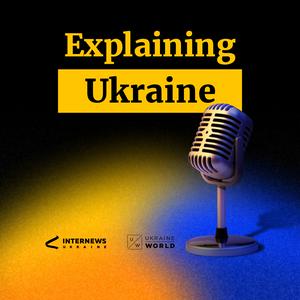
Uzyskaj bezpłatną aplikację radio.pl
- Stacje i podcasty do zakładek
- Strumieniuj przez Wi-Fi lub Bluetooth
- Obsługuje Carplay & Android Auto
- Jeszcze więcej funkcjonalności
Uzyskaj bezpłatną aplikację radio.pl
- Stacje i podcasty do zakładek
- Strumieniuj przez Wi-Fi lub Bluetooth
- Obsługuje Carplay & Android Auto
- Jeszcze więcej funkcjonalności


Explaining Ukraine
Zeskanuj kod,
pobierz aplikację,
zacznij słuchać.
pobierz aplikację,
zacznij słuchać.

